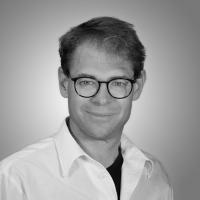Transatlantic Farmer-to-Farmer Exchange on Bioenergy and Climate Friendly Farming Practices
- Event
- Date
-
-
- Location
- Brandenburg, Kansas and Missouri
On 9-19 August 2007, a transatlantic Farmer-to-Farmer exchange program brought together 30 farmers, policy makers, scientists, and journalists from the United States and Europe with an agricultural background. The program included field visits to farms and biomass processing facilities in Germany and the U.S. as well as visits to research institutes to see experimental bioenergy cropping, climate friendly agricultural practices and to discuss the link between climate and agricultural policy.
Co-sponsored by the European Commission, DG External Relations, the exchange was conducted by Ecologic and Environmental Defense. The program successfully provided a forum to exchange views on ongoing farming practices with regard to low carbon innovations and biomass energy in Europe and the U.S. and to compare energy and agricultural policy approaches.
The first part of the exchange program took place in Germany, on 8-11 August 2007. Together, the 15 U.S. farmers, some of them members of the growers association Agramarke and 15 German farmers, among them experts from the PIK, BUND, Naturland, FAL Braunschweig, ZALF, ATB Potsdam and AbL traveled through Germany. For Ecologic, R. Andreas Kraemer and Stephanie Schlegel participated in both sites of the exchange program.
Visits in Germany included:
- The dairy farm of Dr. Manfred Jähne (Marquardt Agrar GmbH, Brandenburg), which served as an example for the combination of traditional farming practices and the use of renewable energies such as biogas, wind energy and solar energy.
- The farm of Prof. Matthias von Oppen, (Gut Lindhorst – Brandenburg) showed the participants how to combine the production of cash crops with no-tillage techniques and experimental short rotation coppice. Mr. Oppen also introduced a regional project that aims to produce hydrogen from biomass.
- At the Leibniz-Centre for Agricultural Landscape Research (ZALF) presentations on environmental impacts of bioenergy cropping were given. Afterwards, Mr. Hufnagel and Prof. Karl-Otto Wenkel demonstrated the institute’s experimental field stations for energy plants.
- Friday afternoon was reserved to visit the Leibniz Institute for Agricultural Engineering Potsdam-Bornim (ATB), which demonstrated different agricultural practices with regard to carbon saving agriculture and bioenergy.
- Eventually the trip took the group to the bioenergy village Juehnde, where participants learned about why and how the bioenergy village developed, the role of local agriculture and forestry to provide bioenergy feedstocks and the technical function of the biogas power station and local heating system.
The U.S. portion of the exchange occurred in the central U.S. plain states of Kansas and Missouri from on 14-19 August 2007. The U.S. program was comprised of a mix of visits to small, family-owned farms and publicly and privately funded bio-energy research and development facilities, including:
- Lifeline Foods, LLC, St. Joseph, Missouri, which offered an overview of the company’s unique relationship with the producer. LifeLine Foods is the largest, producer owned dry corn and also masa milling facility in the United States. Strategically located on the southwestern edge of the corn belt, LifeLine Foods manufactures GMO and NON-GMO products. Participants also had the opportunity to see the ethanol Research & Development Pilot Plant and Lab.
- Tour of Bryan Farms, Inc, Hiawatha, Kansas, which involved an interactive exhibit of family-owned farm and transport equipment, including no-till machinery, and grain storage/dryers.
- Tour of Howard Farms, Inc, Hiawatha, Kansas, where live demonstration of no-till machinery on soil were conducted, as well as demonstration of energy saving GPS guided technology for spot fertilizing.
- Kansas State University, Department Agronomy, Manhattan, Kansas, which offered demonstration of TH Soil Carbon Model, a discussion of no-till and the opportunity for carbon crediting in the Central Plains region of the United States, as well as a tour of KSU’s “North Farm” Bioethanol research plots and a tour through the Konza Prairie Grassland Site.
- Kansas City Board of Trade, Kansas City, Missouri – the KCBT is one of the largest markets for trading of wheat and the group was able to observe the opening bell from the floor of the trading pit. A live-action explanation of the trading activity was provided by Jeffery Borchardt, President & CEO, Kansas City Board of Trade.
The report [pdf, 10.4 MB, English] is available for download.




